ISLAMIC RADICALIZATION
“My grandson wasn’t brought up in Morocco”
Grandparents of one of the suspects in the Barcelona attack insist he was not radicalized at home
Morocco
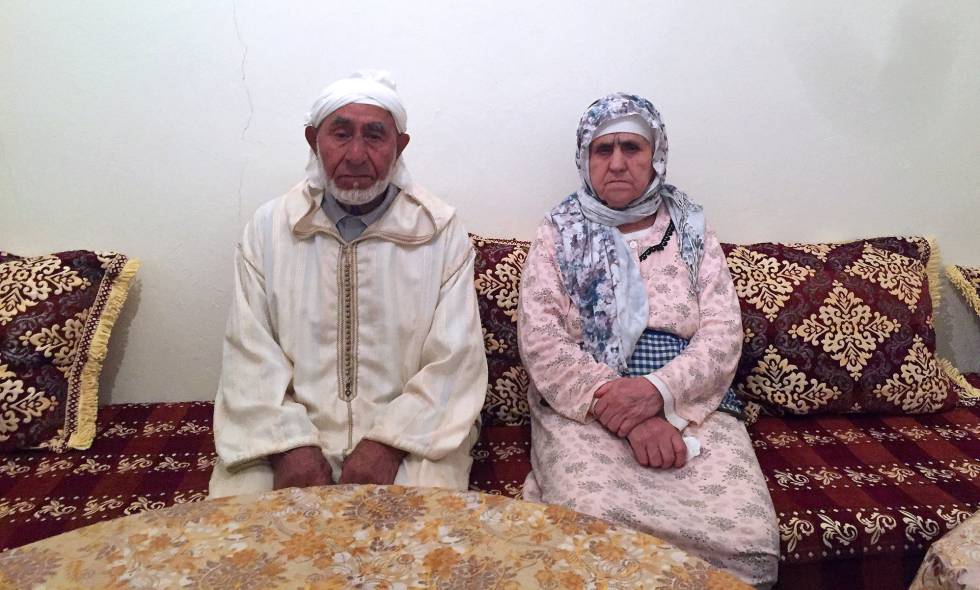
Aqbouch Abouyaaqoub y Hychami Charifa, the grandparents of the lead suspect behind last week's Barcelona attacks. F. P. EL PAÍS
M’rirt is a town of some 30,000 people, three hours from the Moroccan capital of Rabat by car, and the birthplace of four of the suspected terrorists involved in the recent attacks in Barcelona and Cambrils, Tarragona.
I ask where I can find the family of 22-year-old Younes Abouyaaqoub, now believed to have driven the van that killed 14 and left more than 100 injured on La Rambla. Inquiring in bars, I am told they live in the Tahjaouite neighborhood. Then word goes out to the local police that a journalist is on his way.
By the time I get there, five officers are waiting for me. It’s their decision whether to allow access to the family. Finally, one says: “Please, get this message out: we live in a good place with good people. What has happened is an exception. We’ve never had anything like it here before.”
Please, get this message out: we live in a good place with good people. What has happened is an exception. We’ve never had anything like it here beforeFAMILY MEMBER OF ONE OF THE SUSPECTED TERRORISTS
The family and friends of the terrorists don’t deviate from the script. Aqbouch Abouyaaqoub, the 80-year-old grandfather of the chief suspect, asks for forgiveness but says his grandson’s crime has nothing to do with Moroccan culture and tradition. He and his wife Hychami Charifa say their grandson left Morocco when he was very young. Neither the grandparents nor the uncles and aunts are sure exactly when. “My grandson didn’t finish school here. He studied in Spain,” says Aqbouch Abouyaaqoub.
Mohamed Abouyaaqoub, 35, lives in Ripoll, the Spanish town close to the French border where 12 of the terrorists grew up, but is on holiday in M’rirt. He knew the four suspects who were born here: Omar and Mohamed Hychami and Houssaine and Younes Abouyaaqoub (no relation, despite the shared surname). “They were very quiet people,” he says. “All four spoke Spanish and Catalan perfectly. I never suspected anything,” said Mohamed. “I think Younes and Houssaine came here in July on their motorbikes. They had really big bikes. They lived a quiet life. I think it was the imam in Ripoll, Abdelbaki Es Satty, who convinced them to do it. I also went to the imam’s mosque but I never heard him say anything about Daesh (ISIS) or the armed struggle. I think he spoke about those things later in an apartment in Barcelona.”
I think it was the imam in Ripoll, Abdelbaki Es Satty, who convinced them to do it.MOHAMED ABOUYAAQOUB, RIPOLL RESIDENT
A young man approaches and touches the tips of his fingers to his mouth to show that the suspects were good people. The main response among those who knew them is disbelief. In Aghbalá, a town 100 km from M’rirt on a dusty, pot-holed road, the reaction is the same.
Aghbalá is where Moussa Oukabir, the suspect shot by the police in Cambrils, was born. “We don’t have anything to do with the Islamic State here,” says one resident. “The Islamists take advantage of the young for their own ends,” adds another, who identifies himself as Nacer Bouyadnomma. “Moussa Oukabir was a 17-year-old, a minor. What can a boy like that know about the world? These children have nothing in their heads and Daesh comes along to fill them up.”
That afternoon, there is a silent march in Aghbalá. One of the banners reads in faulty Spanish: “Terrorism has no religion or nationality.” Another reads: “In the name of all the immigrants from Aghbalá who live in Spain and Europe, we offer our condolences to the families of the victims of the Barcelona attack.” Many of the residents learned their Spanish in Catalonia.
“The Oukabir family is very large,” says Bassou Oudalia, a local who moved from Aghbalá first to Ripoll and then to Terrassa, in Barcelona. “The parents separated five years ago. They hardly knew what the boy was up to.”
Bassou Oudsahia, also from Aghbalá, who now lives in the south of France, says: “The boy came here once every four years. Hardly anyone in the town knew him.”
We don’t have anything to do with the Islamic State hereRESIDENT OF AGHBALÁ, MOROCCO
Aghbalá is a poor community, and the poverty is what hits you first. The locals live off the land and many of the houses are only half built, while the road connecting it to elsewhere is a nightmare. Many of those who have left Aghbalá behind to settle in Spain – at least those we spoke to – are happy there. No one wants Islam confused with terrorism. “Anyone who kills indiscriminately isn’t a Muslim,” says Oudsahia.
But despite the efforts of the authorities and local people to disassociate the Moroccan-born terrorists from their country of birth, Morocco is widely considered a breeding ground for terrorists. The Moroccan Interior Ministry dismantles at least one cell linked to ISIS a month. Fierce policing means it is the only country in the Maghreb to have stopped these kinds of attacks in the last six years.
English version by Heather Galloway.
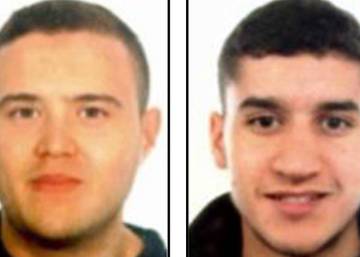
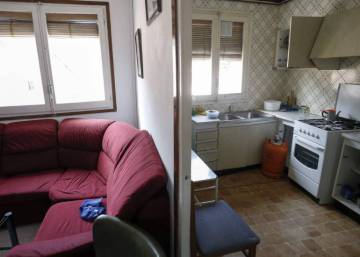
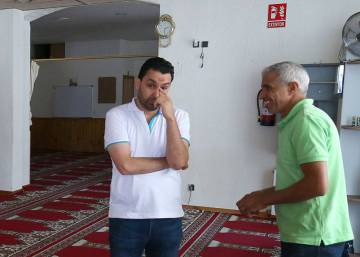
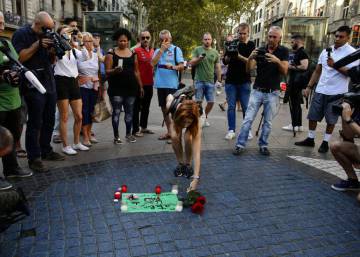





































No hay comentarios:
Publicar un comentario